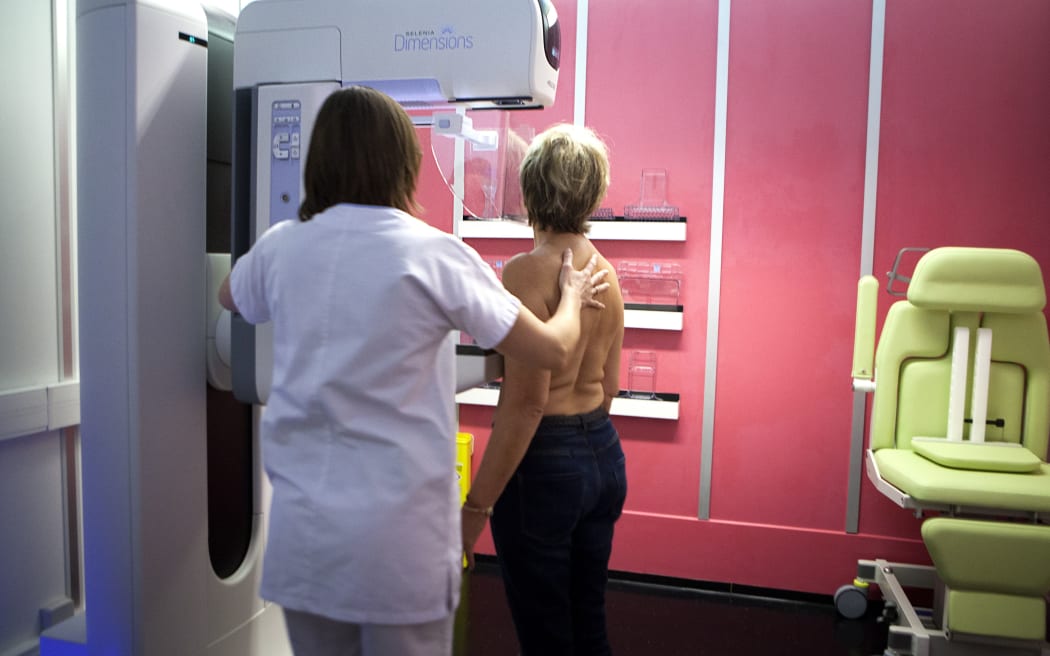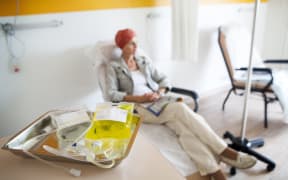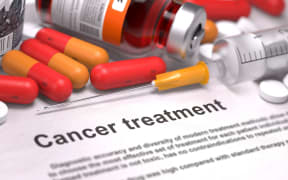An international team of scientists has completed the largest-ever genetic study of breast cancer, which they say gives them a near complete picture of what causes the disease.
The scientists sequenced the whole genome of more than five hundred cases of breast cancer.

A woman has breast cancer screening. Photo: AFP
The study, published in Nature, has been described as a "milestone" moment that could help unlock new ways of treating and preventing the disease.
The international team looked at all three billion letters of people's genetic code in 560 breast cancers.
They uncovered 93 sets of instructions, or genes, that if mutated, can cause tumours.
Cancer Research UK says the findings are an important stepping-stone to new drugs for treating cancer.
Prof Sir Mike Stratton, the director of the Sanger Institute in Cambridge which led the study, said it was a "milestone" in cancer research.
"There are about 20,000 genes in the human genome. It turns out, now we have this complete view of breast cancer - there are 93 of those [genes] that if mutated will convert a normal breast cell into a breast cancer cell. That is an important piece of information.
"We hand that list over to the universities, the pharmaceuticals, the biotech companies to start developing new drugs because those mutated genes and their proteins are targets for new therapeutics," he told the BBC.
"There are now many drugs that have been developed over the last 15 years against such targets which we know work."
Targeted drugs such as Herceptin are already being used by patients with specific mutations.
Prof Stratton expects new drugs will still take at least a decade to reach patients and warns: "Cancers are devious beasts and they work out ways of developing resistance to new therapeutics so overall I'm optimistic, but it's a tempered optimism."
Sixty percent of the mutations driving cancer are found in just 10 genes. At the other end of the spectrum, there are mutations so rare they are in just a tiny fraction of cancers meaning it is unlikely there will be any financial incentive to develop therapies.
Mutations leave unique scars - known as mutational signatures - on DNA and that allowed the team to identify 12 types of damage that cause mutations in the breast.
Some are related to family risk, but most are still unexplained.
One class of mutation seems to stem from the body attacking viruses by mutating their genetic code, but also suffering collateral damage in the process.
Whether any of these processes can be altered is still unknown in this nascent field, but researchers hope the findings could eventually lead to ways of reducing the risk of cancers.
- BBC



